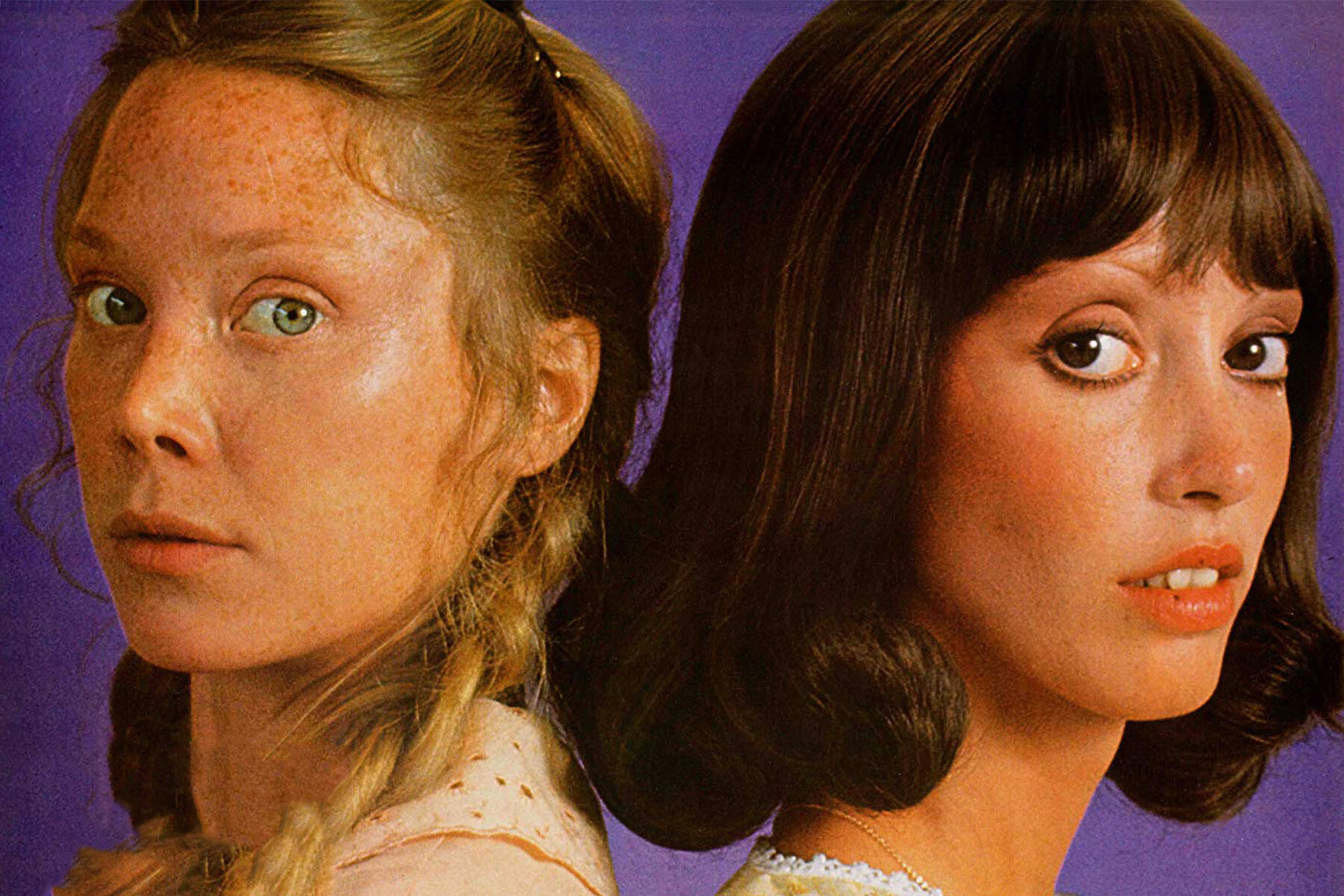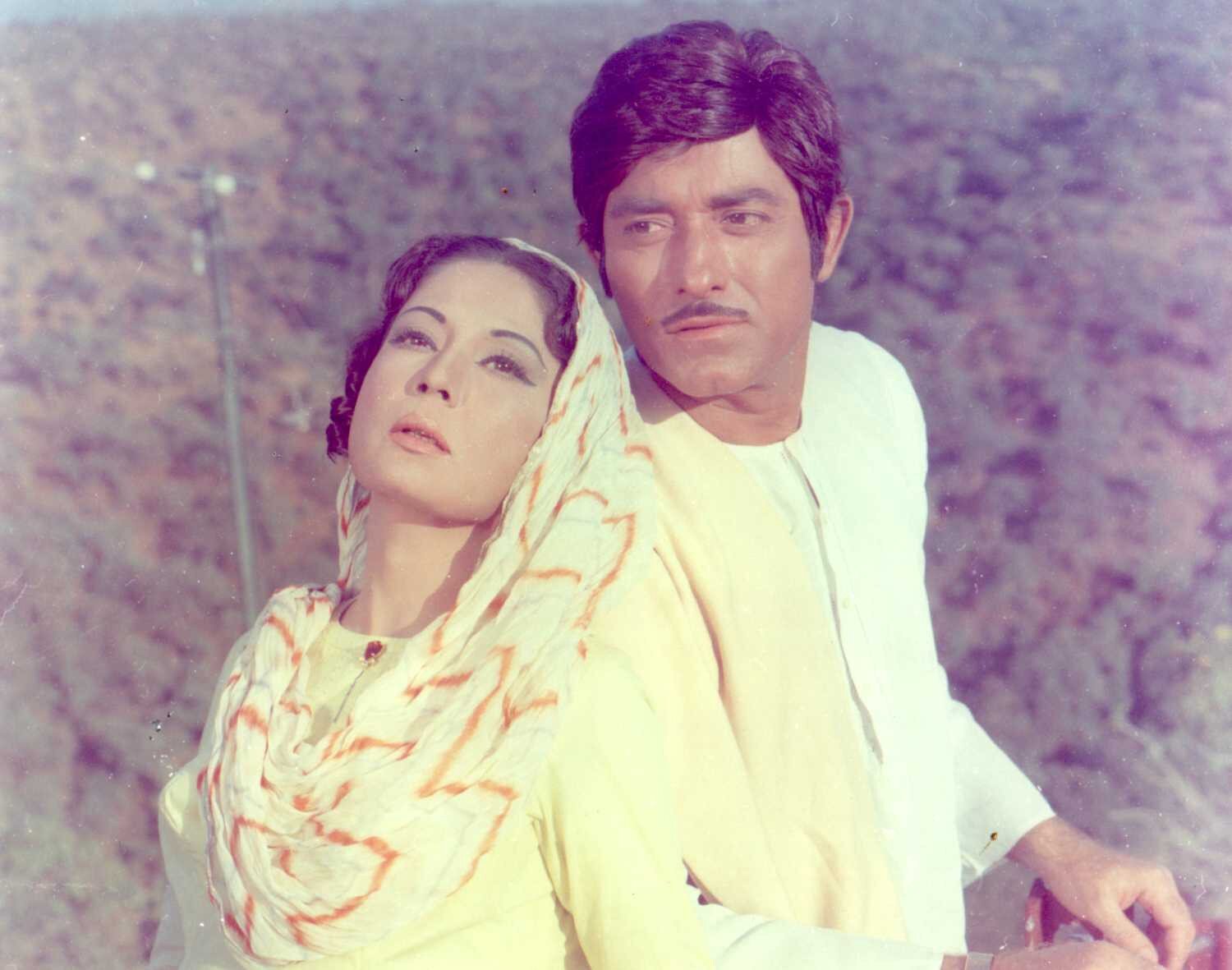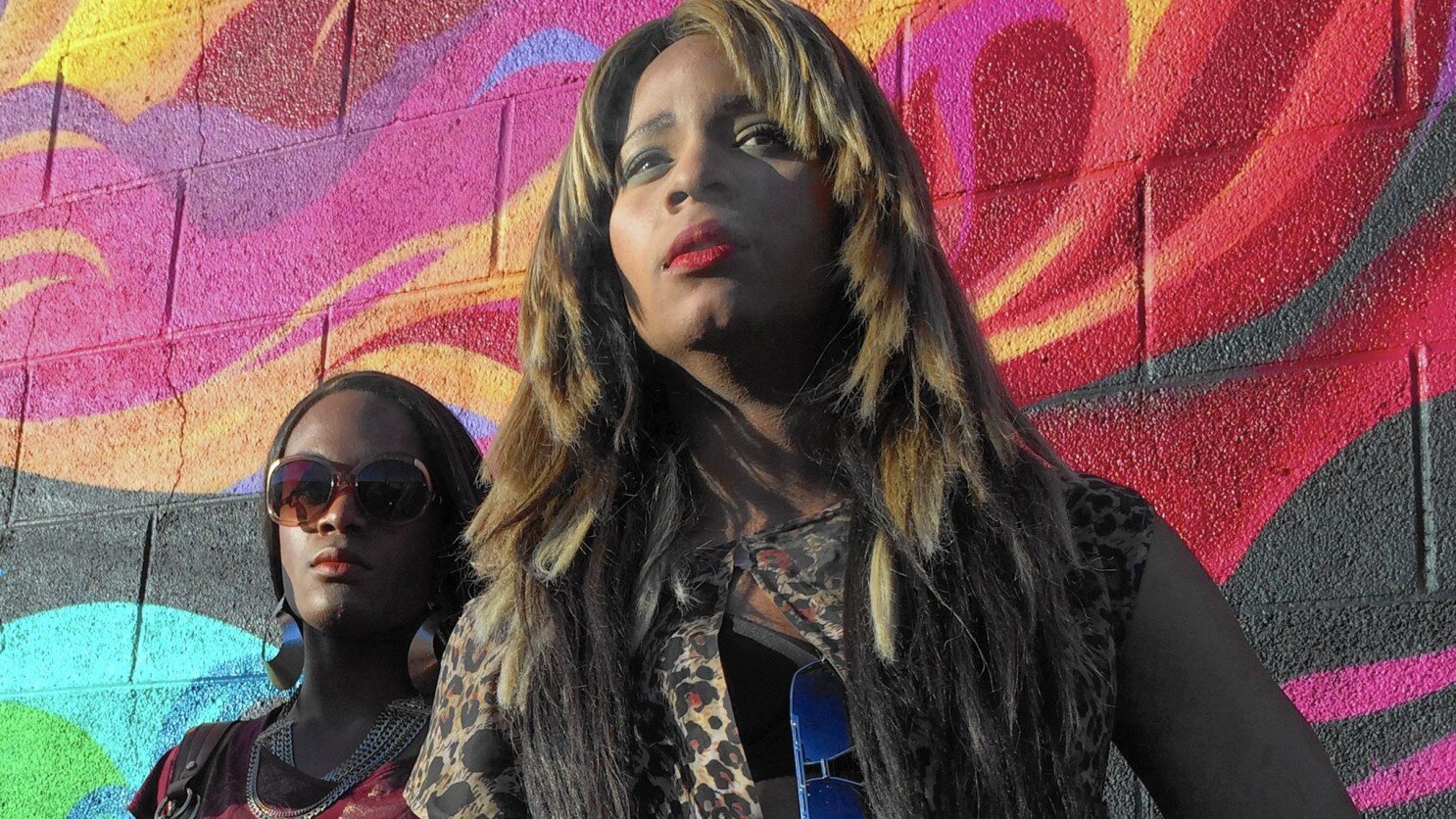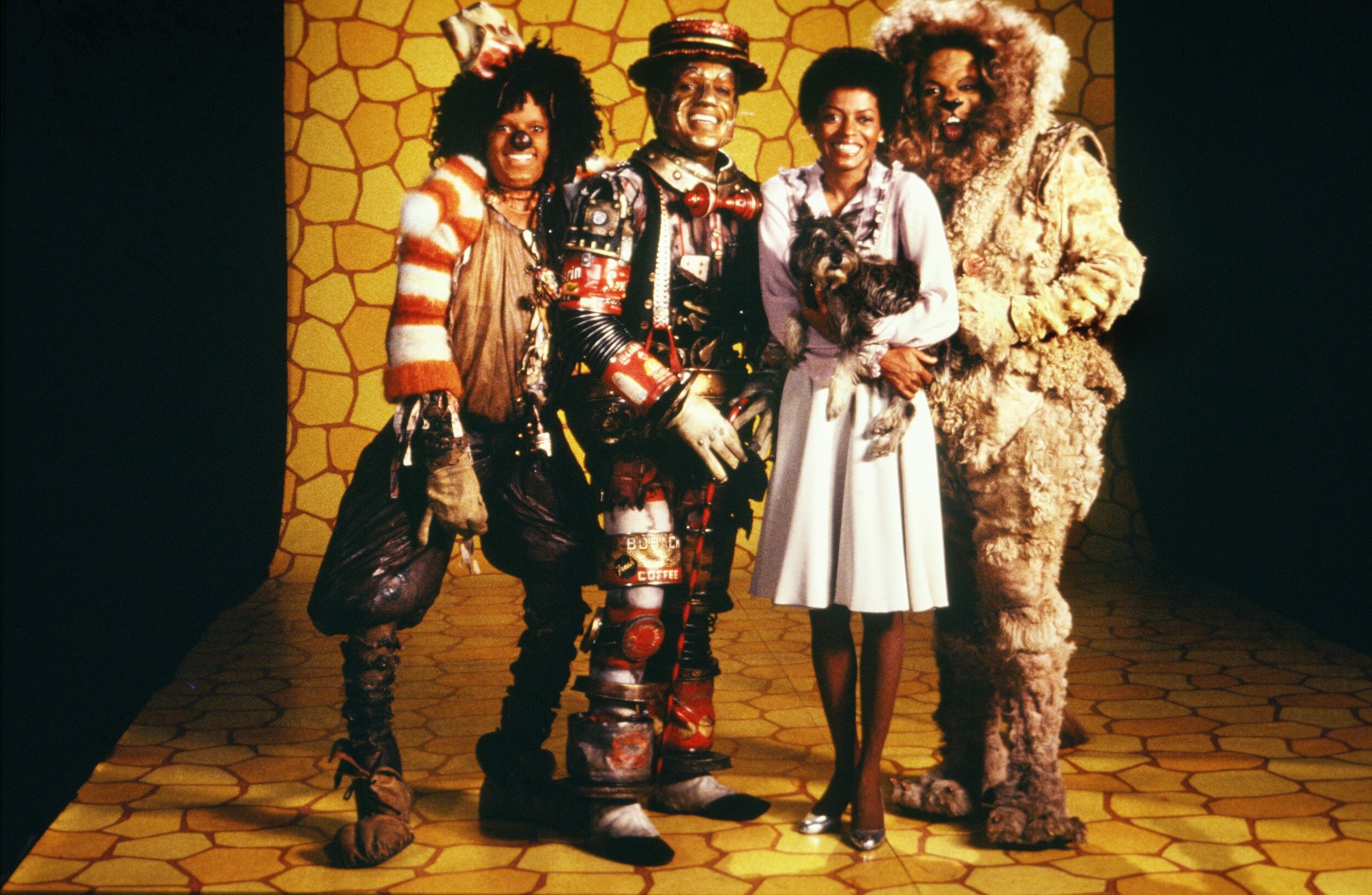
Gavilán Rayna Rossum presents 3 WOMEN
3 WOMEN
1977. 124 min. Directed by Robert Altman.
On her first day of work, naive Pinky Rose meets chatterbox Millie Lammoreaux, and the two quickly become roommates. Things are good at first, but after the women’s first quarrel, Pinky has a bad accident. When Pinky recovers, the two women's identities begin shifting in mysterious ways. Robert Altman’s queerest film boasts brilliant performances from Shelly Duvall, Sissy Spacek, and Janice Rule; a dreamlike narrative similar to PERSONA and MULHOLLAND DRIVE; and a haunting score by gay composer Gerald Busby. Our guest presenter, acclaimed electronic musician and artist Gavilán Rayna Rossum (“The Envoy”, LCD Soundsystem) finds inspiration in the “complex inner feminine worlds the film investigates, the way its ultra witchy version of maid, mother, and crone operates outside of heteronormative rigidity and its ability to elucidate the deeply haunted nature of white American life.”

Baseera Khan presents PAKEEZAH
PAKEEZAH
1972. 154 min. Directed by Kamal Amrohi.
This 1972 Bollywood musical love story set in turn-of-the-century India stars Meena Kumari as an Indo-Islamic tawai’if (courtesan) who is trained in the art of love but forbidden to fall into it. Director Kamal Amrohi relies on the suffocating, deeply entrenched battle between traditional values and the fear of difference (in this case, an independent woman) suggesting that safety and respectability is only found in the arms of a husband. The legend around the making of this film and the tortured romance between director and star adds to the salacious delight of PAKEEZAH, which translates into “the pure one”. As a native-born Muslim American artist, guest presenter Baseera Khan will explain how this film “became her coat of arms and system of protection,” while growing up in Texas.

Deborah Bright presents THE HUNGER
THE HUNGER
1983. 100 min. Directed by Tony Scott.
This erotically charged vampire film, directed by Tony Scott, has all the delights and horrors of 80s era excess, including shoulder-pads, David Bowie, gothic nightclubs, flowing curtains, slow-motion doves, and rapid aging. Susan Sarandon and Catherine Deneuve play star-crossed lovers whose fates become intertwined in what photographer and artist Deborah Bright recalls as “one of the absolute BEST lesbian love scenes in mainstream film.” Beautifully sublime sets, art directed by Clinton Cavers with Stephen Goldblatt’s cinematography, elevates the horror genre into a poetic artifice of decadence and decay. Commended for its queer themes at the height of the AIDS epidemic, Bright saw this movie soon after coming out and found this “visually over the top, very noir, and creepy” cult favorite resonating with her and other “adventurous lesbians.”

Nayland Blake presents THE THING
THE THING
1982. 109 min. Directed by John Carpenter.
In horror legend John Carpenter’s gory 1982 masterpiece, scientists in Antarctica unearth a frozen alien parasite with shape-shifting abilities. When “the thing” begins imitating the appearance of the scientists, suspicion and paranoia turn everyone against each other in a gruesome hunt to stop it from escaping. Acclaimed non-binary artist Nayland Blake first watched the film in 1983, initially interpreting it as an AIDS analogy, then later as a metaphor for fears of homosexuality. “The body eruptions, mutating orifices, and emotional standoffs between the male characters speak to straight fears of queerness as a disease in itself,” Nayland writes. “THE THING told a horror story at the beginning of the decade that the rest of the world would catch up to over the ensuing years.”

André De Shields presents CABIN IN THE SKY
CABIN IN THE SKY
1943. 98 min. Directed by Vincente Minnelli.
When Little Joe is killed by a rival gambler, the angels offer him a second chance. If he can change his sinful ways in six months, he’ll get a pass to enter the Promised Land. But Satan’s son won’t make it easy for Little Joe, placing Lena Horne and other temptations in his path. As the angel and devil battle for Joe’s soul, viewers are treated to show stopping performances by Horne, Ethel Waters, Duke Ellington, and “Bubbles” aka John W. Sublett. For our guest presenter André de Shields, viewing Vincente Minnelli's musical at age nine led to an epiphany that set him on the path to becoming a celebrated Broadway icon in shows like The Wiz, Ain’t Misbehavin’, and Hadestown, for which he won the Tony Award in 2019. De Shields writes “While watching "Bubbles" strut through an incandescent performance of the race song "Shine," I suffered a crucifixion of all of my senses. "Shine" has won me the audition for each of the three Tony nominated roles I've had the honorable pleasure of creating.”

Jewel the Gem presents TANGERINE
TANGERINE
2015. 88 min. Directed by Sean Baker.
Tangerine is an irresistibly chaotic buddy film that chronicles the friendship of two Black trans women sex workers, Sin Dee Reel (Kitana Kiki Rodriguez) and Alexandra (Mya Taylor). Their friendship and loyalty to each other anchors the film as we traverse a 2015 West Hollywood where infidelity, a mysterious clear plastic stiletto, and the many personalities we meet push the film forward. Directed by Sean Baker, the script for TANGERINE was co-created with the lead actors, Kitana and Mya, based on their life experiences. Organizer and healer Jewel the Gem presents this film because “Black Trans Lives Matter. Black Sex Workers Matter. Black Trans Visibility in Media Matters.” Tangerine garnered a lot of attention for not just being recorded entirely on an iPhone, but for also having two trans women play the leading roles.

Brontez Purnell presents TOTALLY F***ED UP
TOTALLY F***ED UP
1983. 78 min. Directed by Gregg Araki.
Totally F**ed Up is a “rag-tag story of (the) fag-and-dyke teen underground…a kind of cross between avant-garde experimental cinema and a queer John Hughes flick,” explains Gregg Araki, who wrote and directed this 1992 cinematic ode to queer adolescent angst. But unlike a Hughes film, these teens aren’t worried about losing their virginity or going out with the most popular person in school. Instead, they are dealing with homophobic violence, the tyranny of being different in the homogeneous backdrop of Los Angeles, and the ecstasy and nightmarish pain of young love. Brontez Purnell remembers “watching this as a teenager in my shitty southern town and praying that I would move to California one day and be as cool as the kids in this movie.” Totally F**Ed Up is the first film in Araki’s "Teen Apocalypse trilogy" of the 1990s, queer teenage nihilism with a heart of gold.

The Uhuruverse presents THE WIZ
THE WIZ
1978. 134 min. Directed by Sidney Lumet.
We began our season with Andre DeShields - who originated the role of “The Wiz” on Broadway - presenting Lena Horne’s debut film Cabin in the Sky. We come full circle by ending with Horne’s final film - The Wiz - presented by an emerging artist whose life was forever changed by it. It’s fitting that in this terrible year, when so many of us have longed to be whisked away to a magical land, overthrow an evil despot, and sing and dance with our friends, that we’re gathering to watch a film where the characters do just that. The Wiz’s remaking of a white Hollywood classic for Black audiences also offers a chance to reflect on this year’s acceleration of the movement for racial justice and conversations surrounding Black representation in media. Guest presenter The Uhuruverse’s fiercely political music, art and activism celebrates Black Trans Lives, and for them seeing the artistry of Black icons like Diana Ross and Quincy Jones was transformative. “I grew up in the projects," they write, "and you don't see that kind of magic there. The Wiz gave me my imagination, gave me hope, gave me art and gave me life!”








